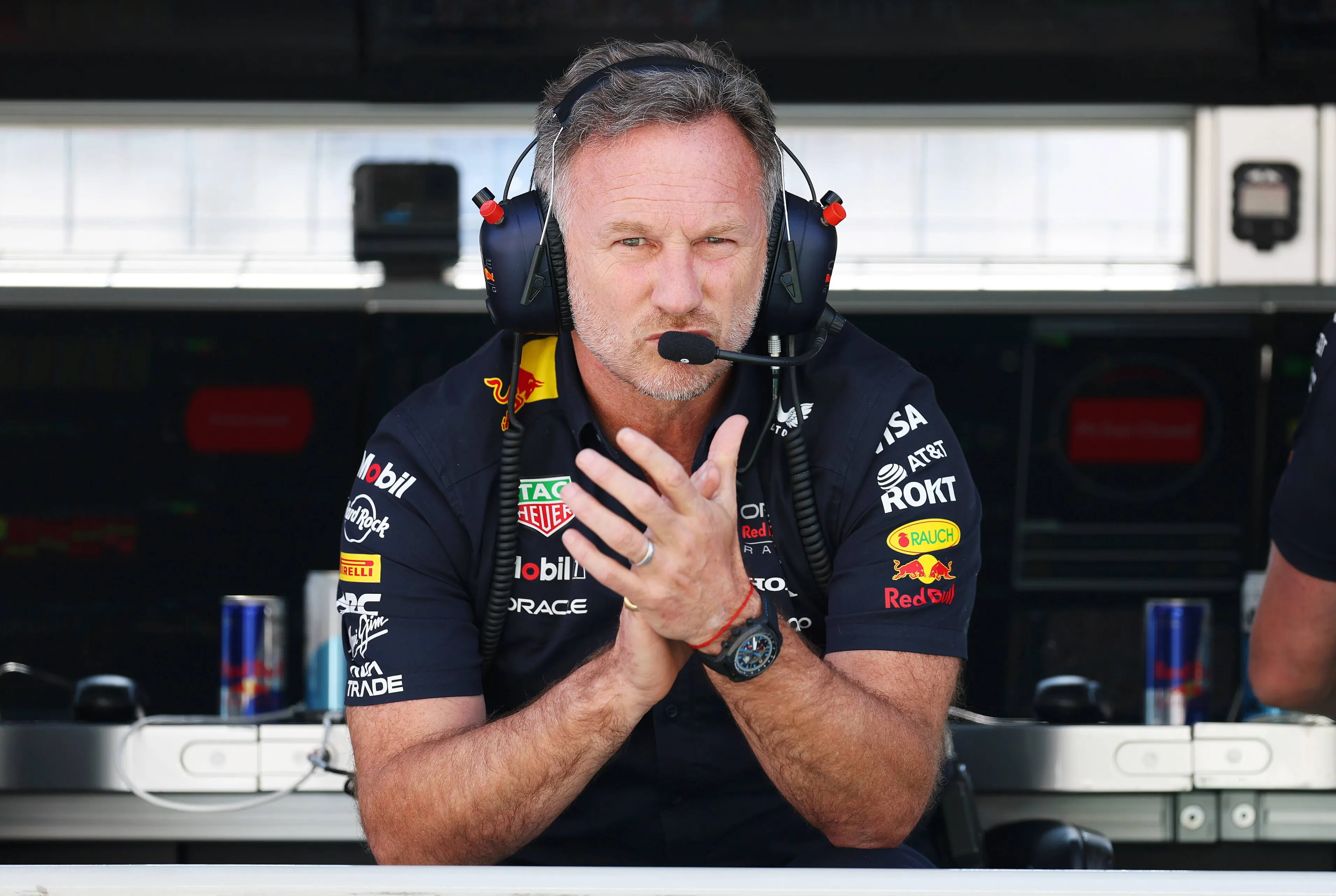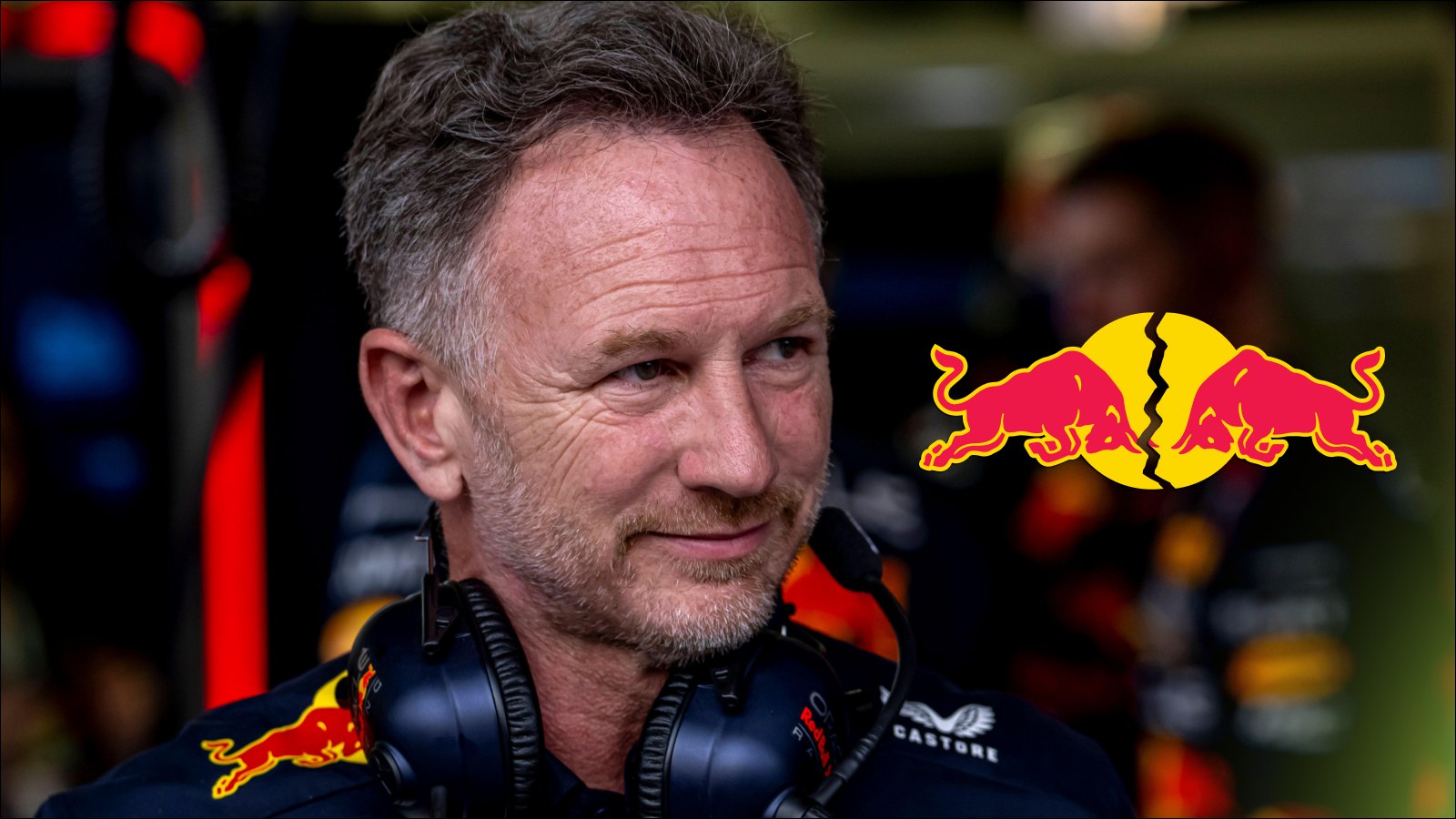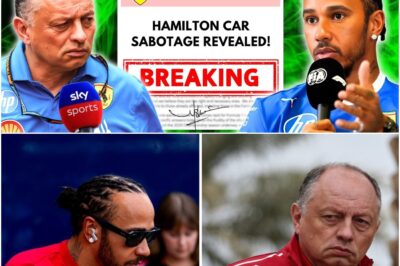In the high-octane world of Formula 1, where fortunes are won and lost in the blink of an eye, the most seismic shifts often happen not on the racetrack, but in the hushed corridors of power. The abrupt dismissal of Christian Horner as Red Bull Racing’s team principal after a storied 20-year reign is a testament to this truth. The news, breaking just two days after the British Grand Prix in July, didn’t just rattle the paddock; it sent a powerful tremor through the very foundations of the sport, leaving experts, fans, and rivals alike to grapple with the fallout of a decision that has irrevocably altered the F1 landscape.

For two decades, Christian Horner was more than just a team principal; he was the architect, the strategist, and the unyielding political force behind Red Bull’s ascent to motorsport royalty. His name became synonymous with the team’s aggressive, no-compromise approach to racing. He cultivated an environment of relentless innovation that produced multiple world championships and turned Red Bull into a dominant force. But his true genius lay in his masterful navigation of the sport’s notoriously treacherous political waters, an arena affectionately and fearfully known as the “Piranha Club.”
Horner was, as many have noted, a “political beast.” In a sport governed by complex regulations, intricate power dynamics, and billion-dollar interests, he was a grandmaster. He fought Red Bull’s corner with a ferocity and cunning that few could match, whether in public spats with rival teams or in closed-door meetings with the FIA. As commentators Anthony Davidson and David Croft astutely observed, Red Bull has not just lost a manager; it has lost its most crucial political advocate, its shield and its sword in the relentless off-track battles that define modern F1. His departure leaves a power vacuum that will be incredibly difficult to fill.
The man tasked with this Herculean challenge is Laurent Mekies, who moves over from the sister team, Racing Bulls. Mekies is a respected and experienced figure in the paddock, but he steps into a role that now demands more than just operational excellence. He inherits a championship-winning machine, but he also inherits the immense pressure of upholding Horner’s legacy in the Piranha Club. The question on everyone’s lips is whether Mekies can develop the same political acumen and pugnacious spirit that made Horner such a formidable presence. The long-term success of Red Bull Racing may very well depend on his ability to adapt and become the political heavyweight the team desperately needs.

The timing and swiftness of Horner’s dismissal have fueled intense speculation. To be ousted so quickly after a major race suggests a decision that was both decisive and final. While the official reasons remain shrouded in corporate-speak, the thoroughness of the restructuring is clear. Corporate documents have confirmed Horner’s termination as a director from various Red Bull entities, a clear signal that this was a complete severance of ties. It was a corporate coup, executed with ruthless efficiency, designed to excise a figure who had once seemed untouchable.
In a striking juxtaposition that has not been lost on observers, as the corporate machinery worked to erase his two-decade legacy, Horner was photographed holidaying on a luxury yacht in Croatia. The image of the deposed king enjoying a sun-drenched exile while his empire was being systematically dismantled is a powerful one. It speaks to a man either blissfully detached from the turmoil or putting on a brave face in the wake of a brutal professional blow. For the F1 community, it was a surreal sight, a momentary pause in a drama that is far from over.
The ripple effects of Horner’s departure will extend far beyond the Red Bull garage. He was a central character in the F1 narrative, a larger-than-life figure whose presence shaped storylines and fueled rivalries. His public battles with Mercedes’ Toto Wolff, for instance, were the stuff of legend, adding a layer of personal drama and intrigue that captivated audiences worldwide. His absence will undoubtedly change the dynamic of the entire paddock. Who will now step up to become the sport’s most vocal and influential team boss?
Furthermore, Horner’s exit could have significant implications for the team’s star driver, Max Verstappen, and its legendary designer, Adrian Newey. Horner was instrumental in creating the stable and highly competitive environment in which both men have thrived. His departure introduces an element of uncertainty that could unsettle the team’s delicate ecosystem. While Red Bull will be desperate to maintain stability, the loss of such a pivotal leadership figure will inevitably raise questions about the long-term future of its key personnel.

As the dust begins to settle, all eyes are on the future. For Red Bull, the path forward is one of transition and adaptation. Laurent Mekies faces the monumental task of steadying the ship while simultaneously learning to navigate the political maelstrom that Horner once commanded with such ease. The team’s on-track performance in the coming months will be scrutinized for any signs of weakness or instability.
For Christian Horner, the future is a blank canvas. A man of his experience, ambition, and connections will not remain on the sidelines for long. The rumor mill is already in overdrive, with credible reports suggesting that Cadillac, the American automotive giant poised to enter F1 in 2026, is considering him for a senior leadership role. Such a move would be a sensational comeback, pitting Horner directly against the team he built from the ground up. It’s a tantalizing prospect that would add yet another explosive chapter to the ever-evolving drama of Formula 1.
Ultimately, the dismissal of Christian Horner is a stark reminder of the brutal, unsentimental nature of elite sport and business. Legacies, no matter how storied, are never entirely secure. In the fast-paced world of Formula 1, the race for power is as relentless as the race on the track, and no one, not even a “political beast” who ruled for twenty years, is immune to a sudden, shocking fall from grace. The Piranha Club has claimed its most famous member, and the sport will never be quite the same.
News
Lewis Hamilton’s stunning performance at the Monza GP left Ferrari utterly speechless. The British driver delivered an unexpected result that has raised eyebrows in the paddock. Ferrari, caught off guard, could hardly believe what they were witnessing. Was this a turning point in the season?
Ferrari’s Unexpected Revival: How Lewis Hamilton is Turning the SF25 into a Championship Contender The paddock at Ferrari has been…
Monza Drama Unfolds: Ferrari’s Stunning Response to the Tow Controversy As the Monza drama continues to make waves, Ferrari has issued a statement that could shift the narrative entirely. The tow controversy has left many wondering what really happened during the race. Ferrari’s response raises more questions than answers, but it’s certainly a game-changer.
F1 Italian Grand Prix: Max Verstappen’s Stunning Pole, McLaren’s Challenge, and Ferrari’s Tough Decisions The 2025 Italian Grand Prix has…
“Monza Chaos: Piastri’s Rule Breach Leads to Unexpected Verdict!” In a stunning twist after the Monza race, Piastri has received a new verdict following his controversial breach of rules. Fans are left questioning the future of this young driver!
Formula 1 Italian Grand Prix: Updates from Friday Practice at Monza The Italian Grand Prix at Monza always promises high-speed…
Ferrari’s Dirty Laundry Exposed: Fred Vasseur Blames Sabotage for Hamilton’s Trouble at the Dutch GP – What Does This Mean for Ferrari’s Reputation and Their Chances in the 2025 Championship?
The Sabotage Scandal: Ferrari’s Darkest Moment Since the Dutch GP After the chaos of the Dutch Grand Prix, the silence…
“The 2025 Italian GP: A Rollercoaster of Emotions – Winners, Losers, and the Moments You Can’t Miss!” Monza’s 2025 Grand Prix proved to be one of the most dramatic in recent years. As the season heats up, which drivers and teams celebrated their triumphs, and who was left reeling from devastating setbacks? Click now to see how the race unfolded with stunning victories and heartbreaking losses.
Monza 2025: The Thrills, Chaos, and Drama of the Italian Grand Prix The 2025 Formula 1 season has been nothing…
“Revealed: How Hamilton’s Telemetry is Set to Revolutionise Ferrari’s Monza Strategy!” Ferrari’s engineers have found something extraordinary in Hamilton’s telemetry data after qualifying at Monza. This revelation could drastically alter the team’s strategy and performance at the Italian Grand Prix. With crucial insights from Hamilton’s data, Ferrari might just have what they need to make a strong push for victory.
Ferrari’s Rebirth: Hamilton’s Monza Masterclass Monza is a track where speed, precision, and strategy come together to create some of…
End of content
No more pages to load












